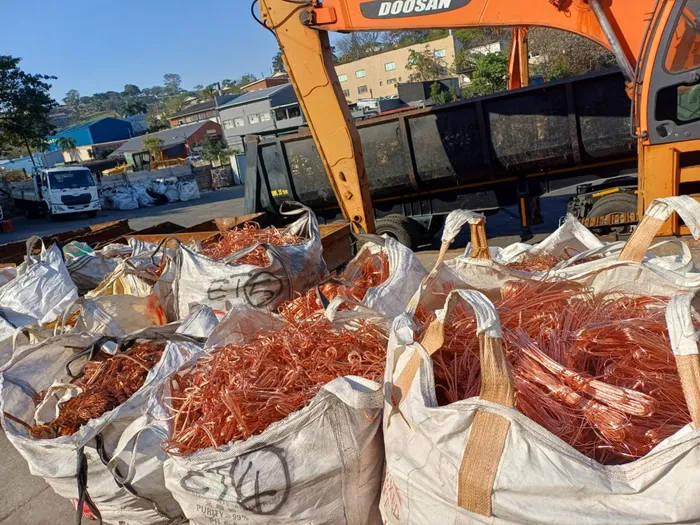Cable theft wreaks havoc on SA
Opinion

The thriving illicit market exploits this situation, resulting in the sale of stolen copper to scrap metal dealers both locally and internationally.
Image: Supplied
Copper cable theft has become a blight on South Africa's infrastructure, affecting essential services that millions rely on. With losses running into billions, the country's rail and electricity sectors are experiencing significant setbacks, leading to frustration among citizens and businesses alike.
The thriving illicit market exploits this situation, resulting in the sale of stolen copper to scrap metal dealers both locally and internationally.
Recent statistics revealed by Transnet reported an astonishing 1 121 km of stolen cable within a single year.
Meanwhile, Eskom, the country's power utility, incurs colossal losses totalling R5.7 billion annually due to copper theft, along with an additional R2 billion to replace the stolen cables.
However, recent developments have provided a glimmer of hope.
On Thursday, 24 April, the Pinetown Magistrate's Court delivered a significant ruling that may restore public faith in the government's commitment to combat crime.
Nqobile Kubheka, a 27-year-old man caught in possession of stolen copper cables belonging to eThekwini Electricity Municipality and Telkom. He was sentenced to three years’ imprisonment or a fine of R 20 000.
The Hawks from the Durban Serious Organised Crime Investigation arrested Kubheka after receiving a tip-off.
This conviction deserves commendation, but many believe it is simply a drop in the ocean when considering the overall scope of the problem. There are big fish involved in the illegal copper trade, those who operate these crimes from the shadows.
Stronger intelligence work targeting these ''big fish'' is desperately needed to nip the problem in the bud. Until the root causes are tackled, the criminal cycle is likely to persist.
Encouragingly, Transnet is exploring the use of advanced remote satellite technology as an alternative option to operate locomotives. This innovative approach holds the potential to significantly reduce the risk of copper cable theft while providing safer, more efficient transportation services across the country.
As South Africa navigates through this maze of criminality, hope remains that innovation, paired with rigorous law enforcement, will stem the criminal tide.